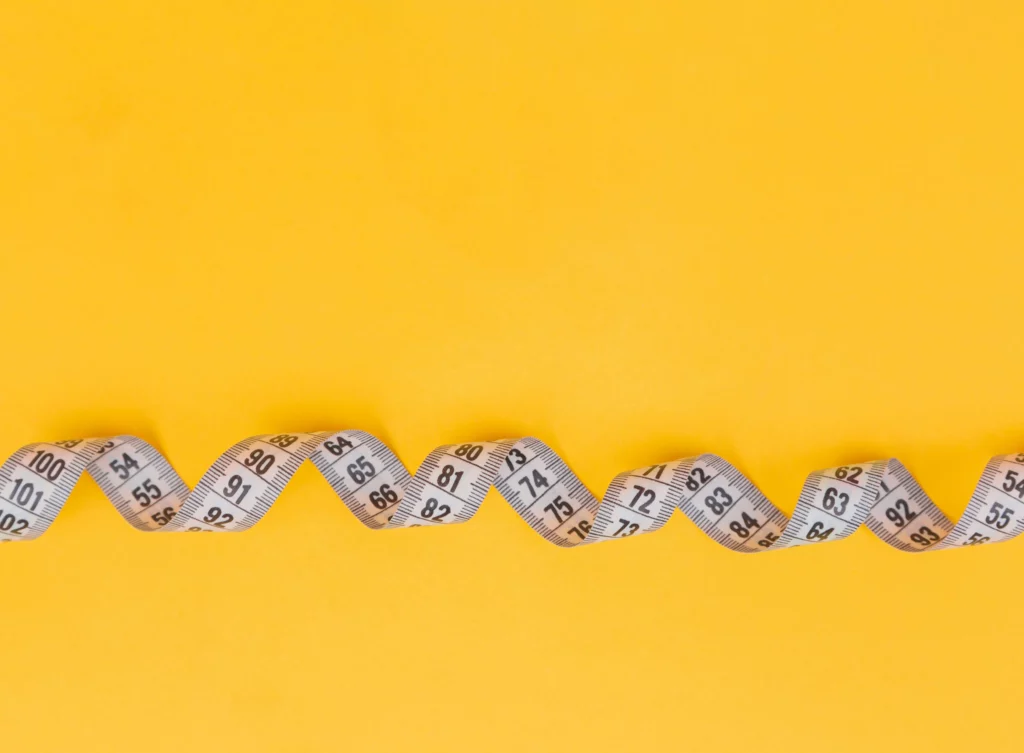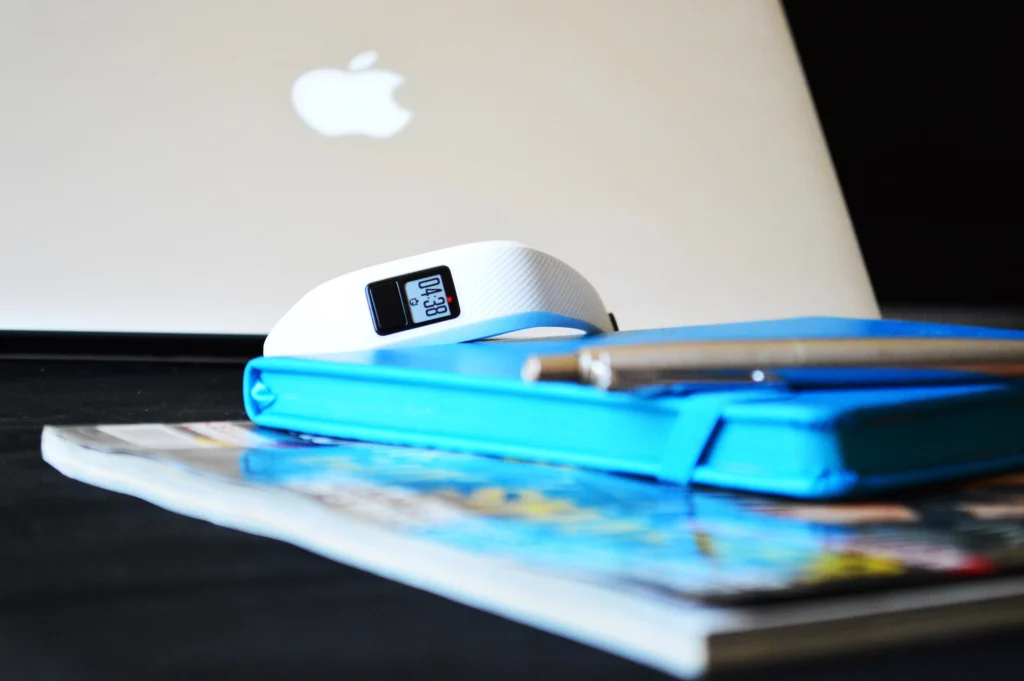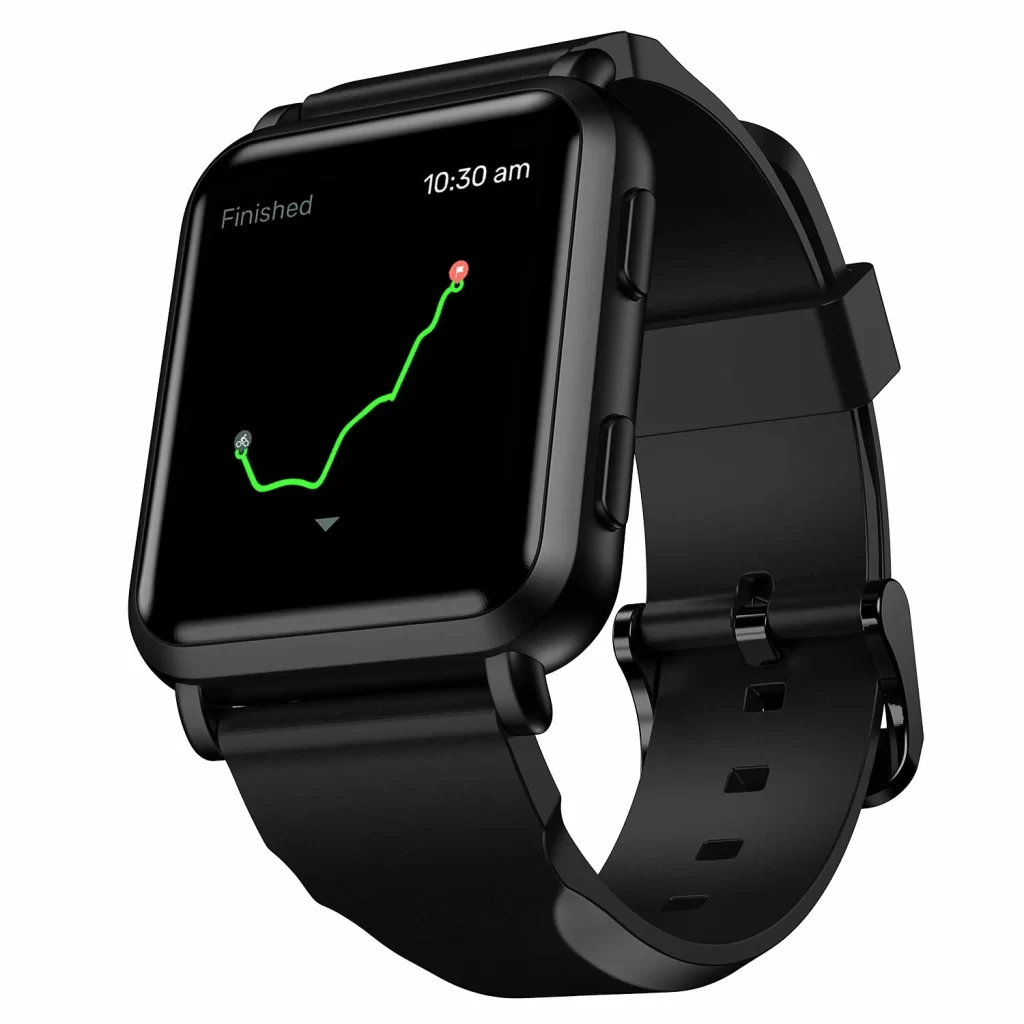Smartwatches are quickly becoming the preferred wearable device for monitoring health and fitness. For example, the Apple Watch, Fitbit Versa and Garmin Vectors all offer users the ability to track their heart rate, sleep habits and more with ease.
While all of these devices have their advantages and disadvantages, one of the areas that they all struggle with is sensor accuracy. In this blog post, we’ll dive into the world of smartwatch sensors to see how accurate they are at measuring heart rate, sleep tracking and SpO2. Keep reading to find out more!

Jump To:
How Accurate Are Smartwatch Sensors?
Smartwatches are very accurate at measuring heart rate and average at sleep tracking. You can improve the accuracy of your smartwatch by keeping it dry, keeping it away from large magnetic fields, and making sure your wrist is at a normal temperature. You can also improve the accuracy of a smartwatch’s sleep tracking by making sure it’s not in active mode during the day and keeping it away from large magnetic fields.
Smartwatches are great for collecting data but not so great for providing detailed analysis. Most smartwatches have a built-in diagnostics app that can tell you your heart rate, steps, and other data at any moment. In fact, the Fitbit Surge is one of the most accurate wrist items in the market with a perfect accuracy of 88% for heart rate and 88% for sleep tracking. This means that Fitbit is one of the best smartwatch companies to work with when it comes to its smartwatch sensor products.
How do smartwatch sensors work?
In the case of a smartwatch sensor, what you see is what you get. The sensor itself is made up of LEDs and photodiodes. The LEDs emit light and then the photodiodes measure the light that is absorbed by your body. This calculates the heart rate based on the amount of light that is being absorbed.
With that in mind, let’s take a look at how accurate sensors are in smartwatches. The first thing to understand is that every sensor has a certain amount of error. Naturally, this error measurement can vary depending on the sensor.
How accurate are smartwatch heart rate sensors?

Heart rate sensors are often the most accurate sensors in smartwatches. This is because the heart is beating and emitting electromagnetic waves that can be measured by sensors. Because of this, heart rate sensors are often very accurate. SpO2 sensors, on the other hand, use light to measure the oxygen levels in your blood.
As such, these are often less accurate than heart rate sensors since blood flow is not as constant as heartbeats. Despite this, many popular smartwatches can keep the error of a heart rate sensor below 5%. You can consider it a very good accuracy rate and in most cases, it is not possible to see a difference between a heart rate sensor and a manual heart rate measurement.
Working on a heart rate sensor in a smartwatch: The heart rate sensor in your smartwatch works by emitting light and measuring how much light it absorbs from your body using photodiodes placed inside it. Then, based on how much light it absorbs from your body, it calculates your heart rate based on how fast or slow you are breathing with an accuracy of +/- 0.1 beats per minute (bpm).
How accurate is sleep tracking in smartwatches?

When it comes to accuracy of smartwatches, there is a lot of debate over how accurate sleep tracking on smartwatches is. Much of this debate surrounds the reliability of smartwatch sensors. There is a lack of research into the accuracy of sleep tracking sensors in smartwatches, which makes it difficult to say with certainty how accurate they are. If we look at the most accurate sleep sensors, they use EEG (electroencephalography) to record brainwave activity.
This method is extremely accurate and can tell us more than just whether a person is awake or asleep. EEG sensors can also tell us what stage of sleep a person is in and whether there are any abnormalities.
It is important to remember that sleep tracking on smartwatches is not EEG. EEG sensors are too bulky and expensive to be put into a smartwatch. As such, sleep tracking on smartwatches is based on sensor data. As we saw above, sensors are often less accurate than EEG.
How reliable are smartwatch SpO2 sensors?
How accurate are smartwatch blood oxygen monitors? Blood oxygen levels are measured using a technology called photoplethysmography (PPG). This measures the amount of light that is being absorbed by the blood in a patient’s finger. The sensor itself is made up of LEDs and photodiodes.
The LEDs emit light and then the photodiodes measure the light that is being absorbed by the blood. The oxygen levels are then calculated based on the amount of light that is being absorbed. SpO2 sensors are commonly found in blood pressure monitoring devices and are very reliable in these devices.
Are smartwatch SpO2 sensors as accurate as oximeters?

Smartwatch SpO2 sensors are not as accurate as oximeters. This means that the sensor is calibrated to be accurate for the user. The accuracy of a sensor depends on how accurate it is in measuring oxygen levels in the blood. However, the accuracy of a sensor depends on how well it can measure light absorption.
As you can see, a smartwatch’s Spo2 sensor is not sensitive enough to measure light absorption. This means that the smartwatch SpO2 sensor is not accurate as an oximeter and should be calibrated with an oximeter for better accuracy.
How accurate are smart watch blood pressure monitors?
Smartwatch blood pressure monitors are not as accurate as medical BP monitors. This means that the sensor is calibrated to be accurate for the user. However, most people who have used this type of technology have found that it’s not as accurate as they would like.
Why Is The Smart Watch Blood Pressure Monitor Not Accurate?

There are several reasons why the smart watch blood watch is not as accurate as you think it will be. When you use an app on your phone or tablet, the information is being sent to the device through Bluetooth technology. This means that there could be interference from other devices in the range. Also, if someone else is using their phone nearby, it could cause interference with your own reading.
The frequency of your heartbeat also has an impact on how accurate your reading is going to be from your smart watch blood pressure monitor. If you have a high heart rate and low blood pressure reading, this can cause inaccurate readings. This is because it’s hard for the sensor on the smart watch to pick up on these changes in your body.
Conclusion | How accurate are smart watch readings?
As we’ve seen, sensors are often the most accurate in smartwatches. This is because the sensors are measuring a person’s biology and electromagnetic waves are being emitted. In the case of heart rate sensors, the measurement is very accurate. However, sleep tracking sensors typically struggle to be accurate.
This is because they are measuring light being absorbed by the blood. Unfortunately, Spo2 measurements are not as reliable in smartwatches.
In short, heart rate sensors are very accurate, sleep sensors are not accurate enough and SpO2 sensors struggle to be accurate. This is why it is important to understand exactly what you are measuring with your smartwatch. When it comes to health and fitness, it is important to be able to trust your sensor measurements as much as possible.